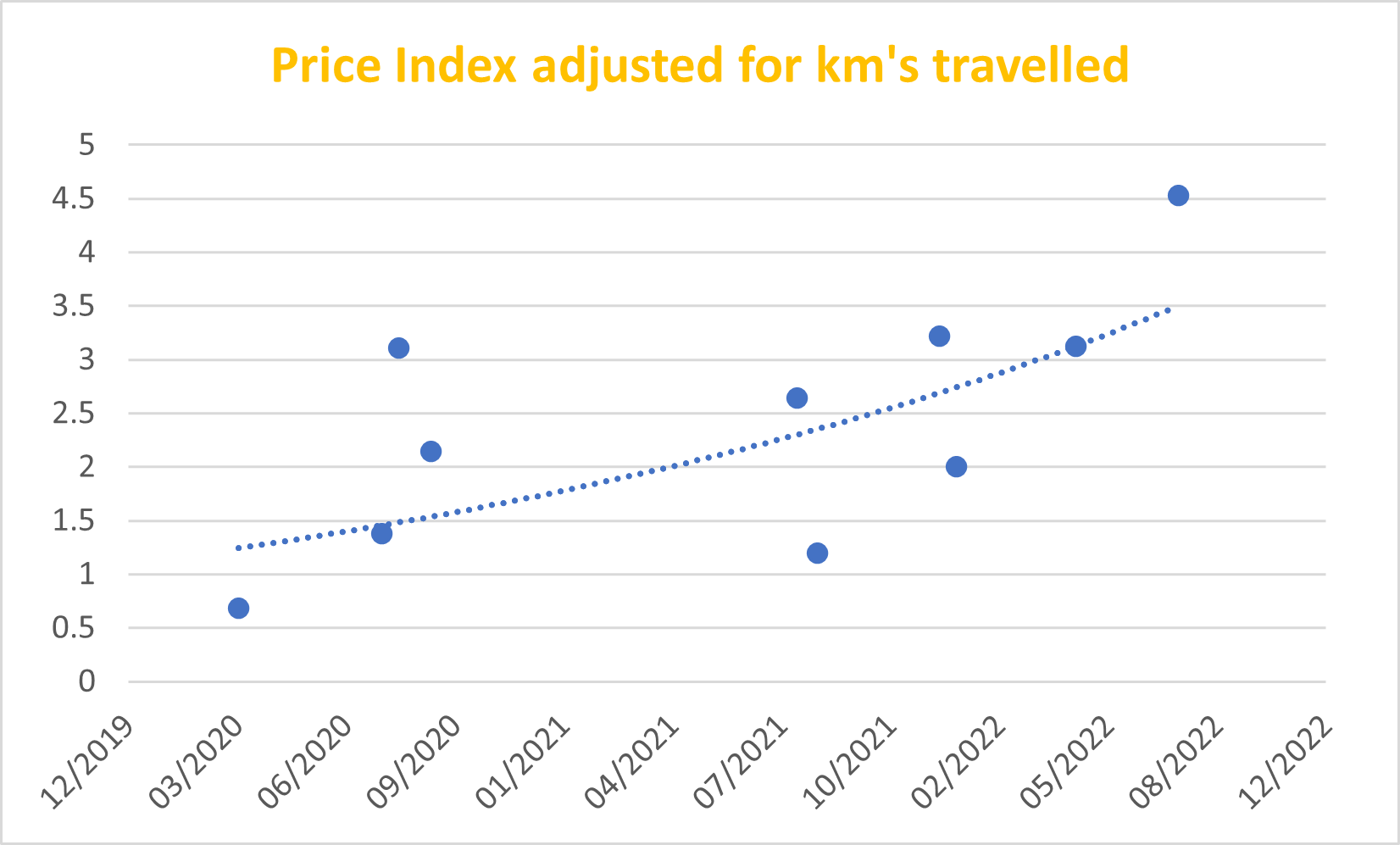Drivible recently launched our network prices feature where we collate the sales transaction data across all our participating dealers to get a rare insight into the actual sales transactions happening at dealerships across Australia.
Unique to drivible, we can collate actual sales transactions at a retail level and give our dealers unprecedented insight into the car market. Recently, we have been studying the inflation effects on the car market in Australia which has been caused by an undersupply of new vehicles and strong demand.
One example is a used Mitsubishi ASX XC LS MY17 2WD which recently sold at one of our dealer partners for $21,695. This vehicle model sold with 99,441 km’s on the odometer and an identical model about 2 years ago sold for $20,980 with only 28,915 km’s.
Hypothetically, you could have bought this car and travelled over 70,000 km’s and in two years made a profit of $715. When adjusted for kilometres travelled, an ASX LS MY 17 has increased over 3x.
The bad news is this trend doesn’t look like reversing for some time, the good news is you might already own an ASX.
It ‘s free to access network prices on the drivible platform. Contact us to find out more.
network prices are obtained from our participating dealers across Australia. drivible prices exclude on road costs




